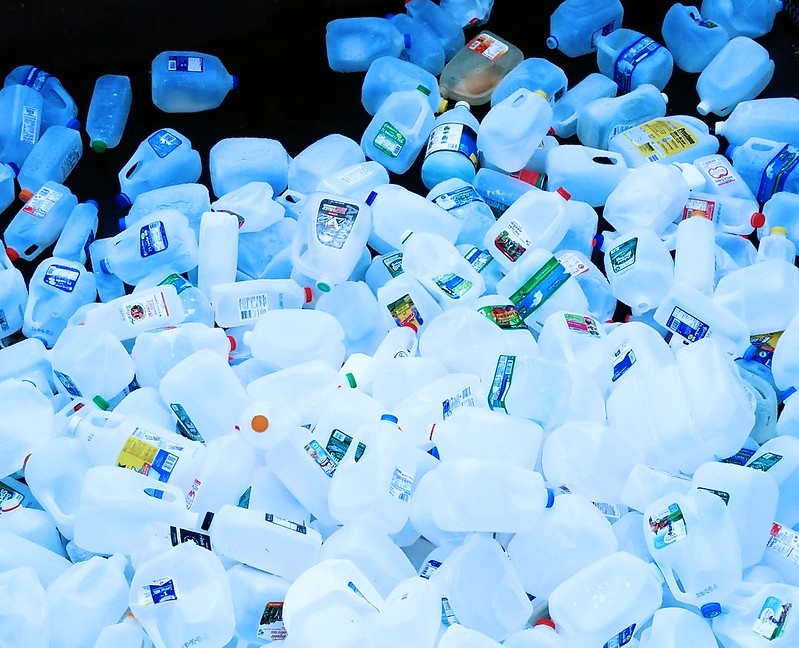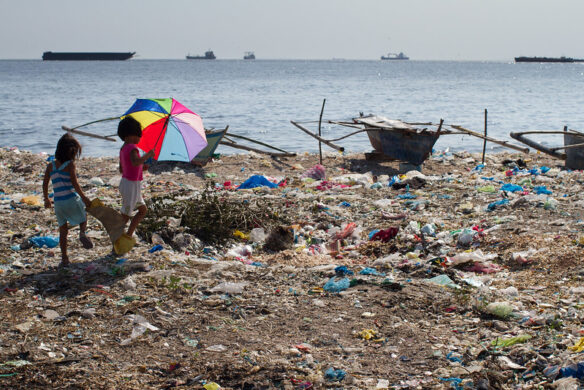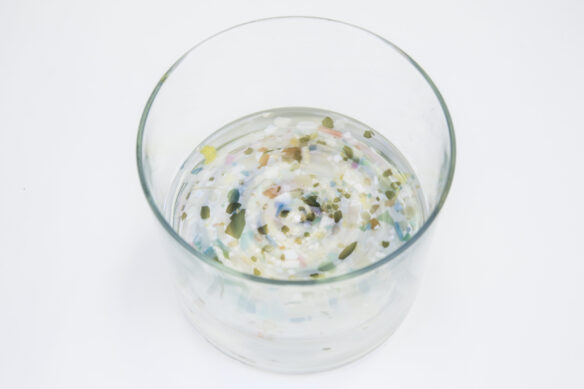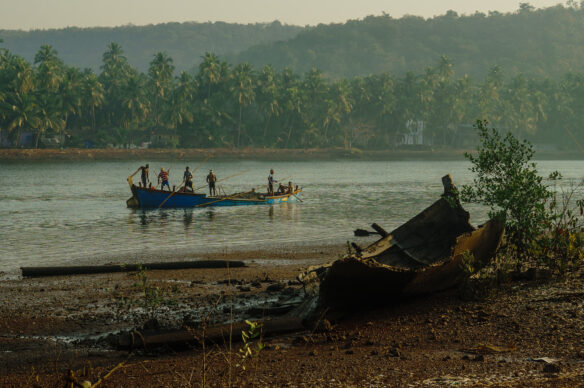Excerpt:
Campaign group says plastics are incompatible with circular economy as countries prepare for treaty talks.
Recycling plastic can make it more toxic and should not be considered a solution to the pollution crisis, Greenpeace has warned before the latest round of negotiations for an international plastics treaty.
“Plastics are inherently incompatible with a circular economy,” the global environmental network said in a report that brings together research showing recycled plastics are more toxic than their virgin constituents.
The report, timed to coincide with the beginning of fresh talks for a potential global plastics treaty, comes as separate research has found breaking down plastics for recycling scatters microplastic pollution into the environment.
Representatives from 173 countries last year agreed to develop a legally binding treaty covering the “full lifecycle” of plastics from production to disposal, to be negotiated over the next two years.
Next week they are due to meet in Paris, for talks that have already been criticised for excluding communities in developing countries harmed by dumping and burning of plastic waste, as well as marginalised waste pickers, who are crucial to recycling.
Without those voices, the fear is that negotiations will be swayed by corporate interests. “The plastics industry – including fossil fuel, petrochemical and consumer goods companies – continues to put forward plastic recycling as the solution to the plastic pollution crisis,” said Graham Forbes, who leads Greenpeace USA’s global plastics campaign.
“But … the toxicity of plastic actually increases with recycling. Plastics have no place in a circular economy and it’s clear that the only real solution to ending plastic pollution is to massively reduce plastic production…”
Additional Reading:
Experts sound the alarm on toxic chemicals ahead of plastic treaty negotiations
A quarter of the 13,000 chemicals commonly added to plastics are known to have hazardous properties.
60 Leading Innovators Against Plastic Pollution Call for a Pragmatic and Inclusive Global Plastics Treaty
rePurpose Global and The Ocean Cleanup launch new alliance of leading plastic waste solutionists dedicated to empowering informed policymaking.









